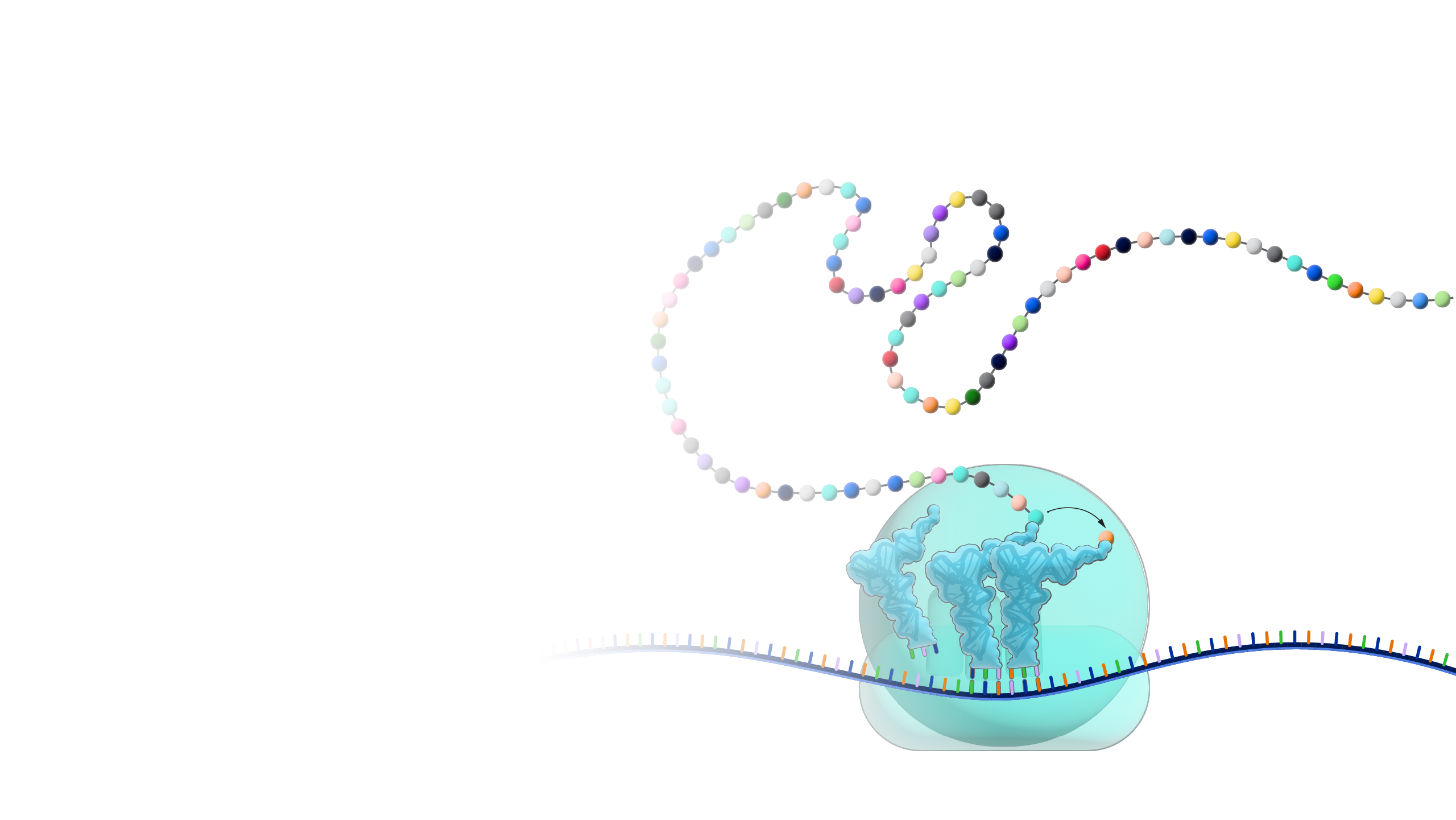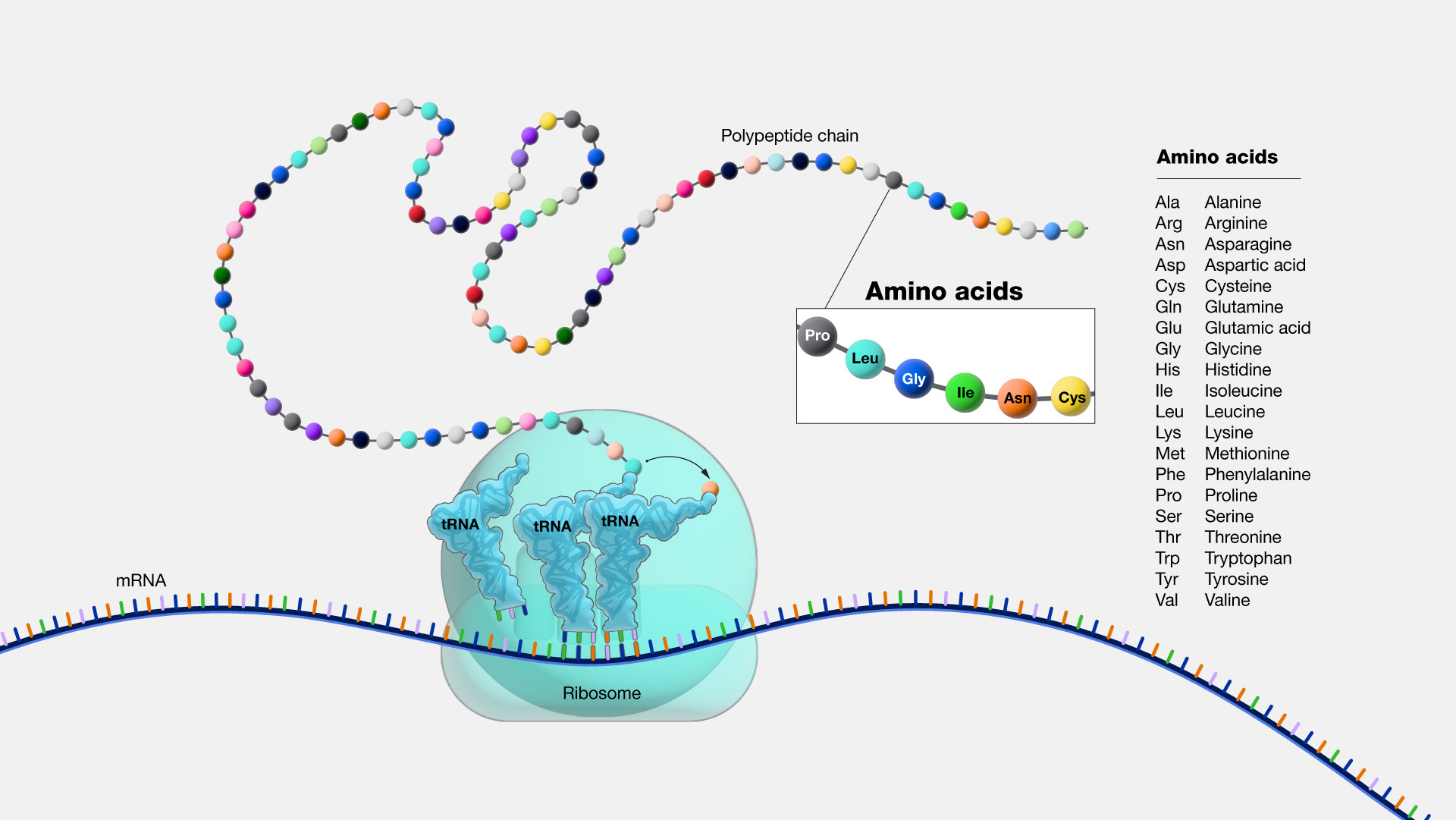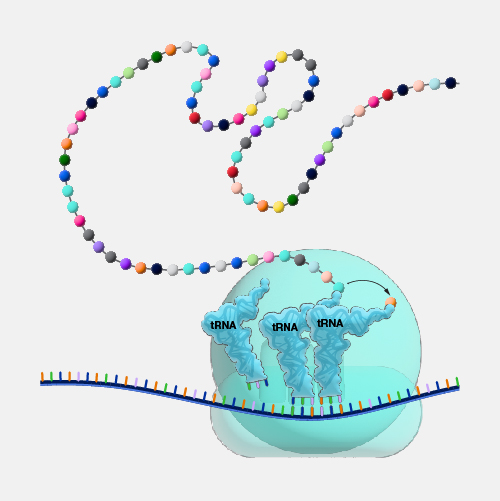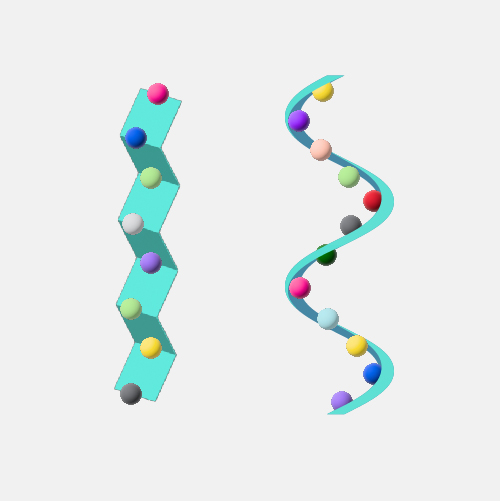
Amino Acids
Definition
An amino acid is the fundamental molecule that serves as the building block for proteins. There are 20 different amino acids. A protein consists of one or more chains of amino acids (called polypeptides) whose sequence is encoded in a gene. Some amino acids can be synthesized in the body, but others (essential amino acids) cannot and must be obtained from a person’s diet.

Narration
The term amino acid has seeped into common language, such as to market food products. You may have seen lists of foods with “high amounts of amino acids,” such as eggs or quinoa. And now when you see those labels, you will know that they’re referring to a fundamental component of your proteins that is not static, but functional on a daily basis. And all of the information for encoding all of those amino acids in all of your proteins is contained within your genome! There are about 20 amino acids and they link together in molecular chains called polypeptides, which are the building blocks of proteins. So, imagine each amino acid as a pearl strung together with other pearls in a long necklace.





